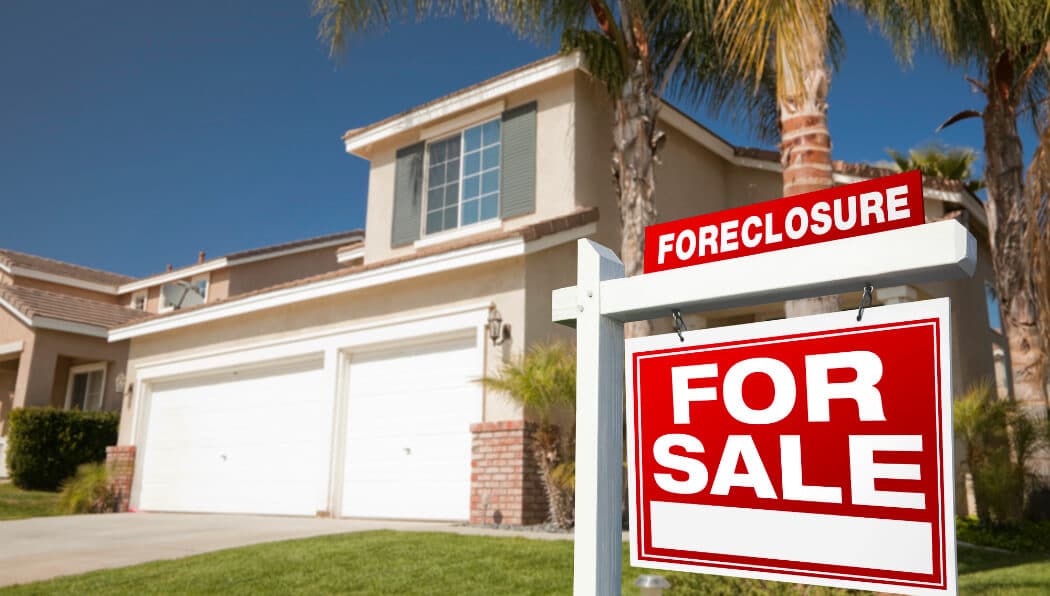Speak to a Foreclosure Lawyer
Answer the following questions to schedule a free consultation
Answer the following questions to schedule a free consultation
To get started, give us a call during normal business hours and share some basic details about your case.
We’ll listen to your story, understand your goals, and create a legal strategy that aligns with your needs.
Receive top-quality legal representation. We’ll continue fighting until we get you the outcome you deserve.

A default notice from your mortgage company often signals that you or your household may face serious financial problems. If left ignored, the notice may lead to a great risk that you will ultimately lose your home. Rather than hoping your problems vanish, you should get advice from an experienced foreclosure lawyer in your area. Most attorneys offer a free consultation, which can help you figure out the next steps.
A foreclosed house is one that has been repossessed by the lender when the borrower defaults. Usually, this happens when the homeowner misses monthly payments and the mortgagee declares the outstanding balance and interest immediately due. That obligation to repay may be contained in a promissory note.
Should you default, the mortgagee can choose (in most states) one of two types of proceedings. One is a judicial foreclosure, in which the mortgagee files a lawsuit for repossession. With this approach, you may be entitled to a trial on whether the property should be foreclosed. More commonly however, the holder will invoke the “power of sale” clause in a mortgage to foreclose and sell the property. This ‘non-judicial’ method represents, compared to a lawsuit, a faster process and is the preferred option for most lenders. Such parties generally have to prove only that you’re in default and you received the proper notices. Your defenses are more limited in a non-judicial foreclosure.
If the court find grounds for the foreclosure, then the real estate is sold at a public auction. Notices consisting of the time and place of the sale are published in local newspapers and posted at the courthouse. After the sale, the buyer pays the outstanding balance of and interest on what was borrowed. If any money remains, those with junior liens or interests are paid. Any surplus after that goes to the original owner.

If you’re facing foreclosure, you may have some legal defenses worth exploring. An experienced attorney can help you uncover issues about the legitimacy of the foreclosure action. These defenses include that you did not get reasonable notice of the proceeding and that the petitioning party lacked standing because it neither was the lender nor had the rights of the lender assigned to it. Obviously, there is no right to foreclose if you’re not in default. In this regard, a foreclosure lawyer can help you prove that the mortgagee accepted your late payments.
Experts in foreclosure law can handle instances where the promissory note holder has overcharged you late fees and interest. In such cases, the lender may be forcing you to pay the wrong cost to redeem the real property and keep it from being foreclosed. The redemption amount consists of the outstanding past-due principal and interest payments, along with any late fees. Overcharging may happen when the lender employs interest rates that are higher than allowed by law or the agreement.
If your lender pursues a power of sale process, you may have to file a lawsuit to get a court to hear your side of the case. In such an action, you can raise grounds about the unfairness of allowing the land to be taken. For instance, you may be able to argue that the note holder failed to follow through on a promised modification and that you stopped paying due to that breach.

You can access loss mitigation efforts if the loan is backed by the Federal Housing Administration, an agency of HUD, or by the Veterans’ Administration. These may include modifications of your loan, such as reducing interest rates, obtaining new financing to payoff the existing loan or extending the term of the current loan.
Federal law also affords another protection for active members of the United States military or National Guard. Specifically, the Servicemembers Civil Relief Act (SCRA) prohibits legal actions against those presently serving in the military. If you’re in active service member, contact a local foreclosure attorney for advice on your rights to avoid your house from being foreclosed.
As perhaps a last resort of prevention, you may consider filing bankruptcy. Along with a discharge of debts, bankruptcy stops all legal and collection actions against you while such a proceeding is ongoing. This includes those to foreclose the home. If you go this route, you will likely have to enter into a Chapter 13 repayment plan. In Chapter 13, you continue your regular mortgage payment and pay into the plan payments based upon how much you are behind to the bank, other lender or holder of the note.
A good local attorney who specializes in Chapter 13 can help you pursue options to save your land and house. Specifically, the services of these professionals include using your monthly income, personal and household expenses and debt payments to fashion an affordable repayment plan. When you complete the plan payments, your credit card and most other debts disappear. Your mortgage remains, but you don’t face the consequences of default as long as you continue being current.

Foreclosure does not always just affect those with ownership in the real estate. If you’re a tenant of a foreclosed residence, you have certain rights that specialists in foreclosure law can pursue for you. When real property being rented as a residence changes ownership after a sale, the new owner must give you 30-90 days of advanced notice before starting an eviction proceeding. This temporary protection from an eviction can allow you time find a new residence.

When you are facing the potential loss of your home, you may need an attorney who experienced in foreclosure-related matters. The lawyer will provide a consultation — perhaps for free– that will allow you to explore the best possible method of keeping your property.
To best recommend how to respond to a potential foreclosure, a lawyer will want to examine the lending agreement and notices from the bank. The details gathered during the consultation can help the lawyer determine if your rights have been violated. You should bring all of the letters from the real estate lending company, especially the letter that states how much is owed and what it would take to get a reversal of the intended repossession.
Also, prepare a statement of your monthly income, your regular expenses and your other bills. With this information, the lawyer may be able to recommend a mortgage modification or Chapter 13, which would provide an affordable and feasible way to keep your home.
During the meeting, ask how much it will cost to get representation. Typically, foreclosure attorneys either bill through a flat fee or by the hour. You will likely have additional expenses preparing for a trial or an appeal against an adverse ruling.
When looking for a foreclosure law firm near you, you can turn to online directories and review websites. Online ratings and reviews can provide great insight into the lawyer’s services, skills and ability to deliver the best possible results. If the bank is threatening repossession of your residence and you would like to know how to respond, contact an experienced legal professional for a free consultation today.
